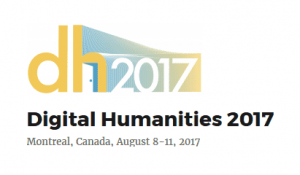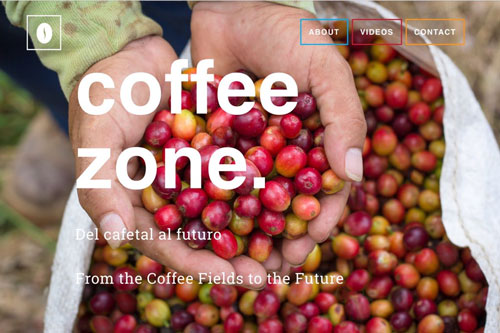 Zur Zeit (8.-11.8.2017) findet in Montreal die Konferenz «Digital Humanities 2017» statt. 800 Teilnehmer aus dem Bereich der digitalen Geisteswissenschaften weltweit treffen sich in Kanada und tauschen sich zu den aktuellen Themen aus. Ein Blick in das Programm und die viel versprechenden Abstracts unterstreicht die zentrale Bedeutung dieser Tagung. Die gestrige Keynote von Marin Dacos (Directeur et fondateur d’OpenEdition. Conseiller scientifique pour Science ouverte Ministère de la recherche France) hat – so war auf Twitter mitzulesen – viel Beachtung gefunden.
Zur Zeit (8.-11.8.2017) findet in Montreal die Konferenz «Digital Humanities 2017» statt. 800 Teilnehmer aus dem Bereich der digitalen Geisteswissenschaften weltweit treffen sich in Kanada und tauschen sich zu den aktuellen Themen aus. Ein Blick in das Programm und die viel versprechenden Abstracts unterstreicht die zentrale Bedeutung dieser Tagung. Die gestrige Keynote von Marin Dacos (Directeur et fondateur d’OpenEdition. Conseiller scientifique pour Science ouverte Ministère de la recherche France) hat – so war auf Twitter mitzulesen – viel Beachtung gefunden.
Wir haben bereits auf Twitter davon berichtet, dass eines der spannenden Projekte, die in Montreal vorgestellt werden, die «Coffee Zone» ist – Del cafetal al futuro / From the coffee fields to the future:
Coffee farming has been closely associated with the social, cultural and economic stability of the western mountainous zone of Puerto Rico. The island’s coffee industry was thriving until the eighties. But due to high production costs, lack of international marketing and dwindling availability of manual labor Puerto Rico’s coffee industry is on the wane. People from the coffee zone are moving to other coastal areas either to work in factories or to study in urban universities to earn professional degrees, leaving behind their community and their traditional way of life.
This digital archive encompasses the oral histories of coffee pickers, farmers, hacendados (owners of vast farming land), women and teens from the mountainous western area of Puerto Rico known as the coffee zone. This archive is the first to record and preserve the coffee zone’s dialect and oral histories. The collection also includes the ways in which women in the coffee industry have handled the micro-changes in their community, and how these changes have played a role in the preservation, and sometimes annihilation, of the coffee zone’s dialect. This website enhances our understanding on how seemingly unrelated areas, such as migratory patterns and a country’s economy, affect language.
Wie gesagt, die Abstracts bieten einen sehr guten Einblick in die Vorträge auf der «Digital Humanities 2017». Bleibt zu hoffen, dass viele Vortragsfolien auch online zugängig gemacht werden.
